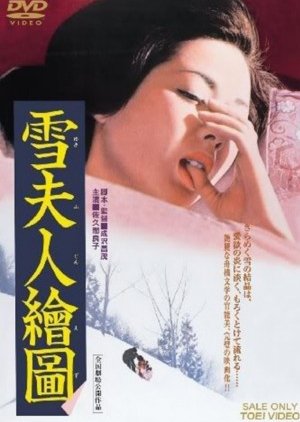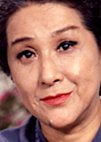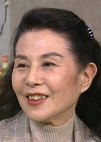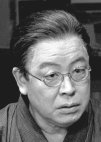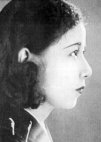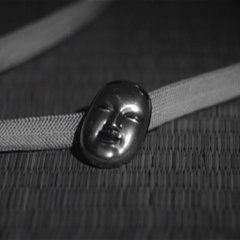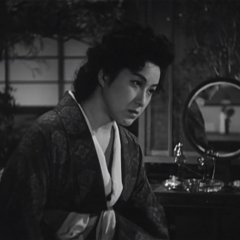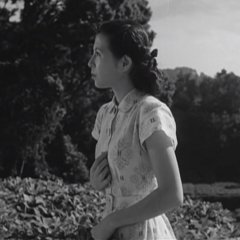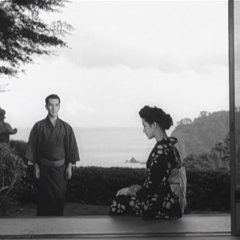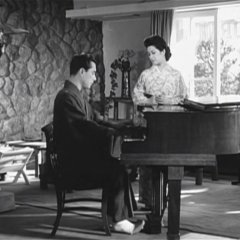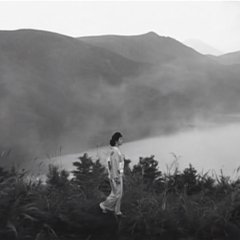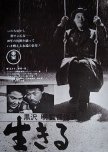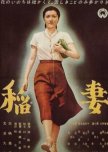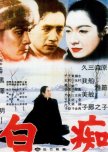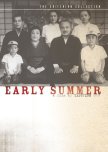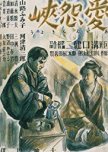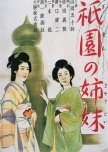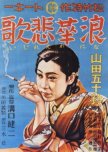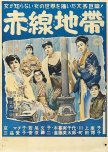Hamako has just started working for her personal hero, Madame Yuki. Her romanticized view of the Madame is broken immediately, though, as she is introduced with a ever-growing list of the Madame’s personal problems. Edit Translation
- English
- magyar / magyar nyelv
- dansk
- Norsk
- Native Title: 雪夫人絵図
- Also Known As: Yuki fujin ezu , Picture of Madame Yuki ,
- Director: Mizoguchi Kenji
- Screenwriter: Funahashi Kazuo, Yoda Yoshitaka
- Genres: Drama
Cast & Credits
- Kogure Michiyo Main Role
- Uehara Ken Main Role
- Kuga YoshikoAbe HamakoSupport Role
- Yanagi EijiroShinano NaoyukiSupport Role
- Urabe KumekoSanSupport Role
- Natsukawa ShizueOsumiSupport Role
Reviews

"Am I a coward?"
Portrait of Madame Yuki was a strange and twisted tale from Mizoguchi Kenji. Ostensibly about male domination, it felt more like a toxic relationship based on S & M.Yuki and her husband live apart most of the time, but have reunited over the death of the family patriarch. All that they have left is the estate she owns. Her husband has a mistress and is a wastrel with money. Yuki and her friend, Professor Kikunaka, decide to open her house as an inn in order for her to make money and become independent. The servants all believe she’s in love with the professor but their relationship always comes across as platonic, though his feelings may run deeper. Her husband isn’t afraid to bring his mistress home or even to force himself on Yuki. Regardless of how badly he humiliates her, Yuki can never tell him no. The professor tries to convince Yuki to divorce her husband, but the “demon” inside her won’t let him go even when he attempts to steal her home out from under her.
The version I watched of this film was difficult to follow at first as whoever/whatever did the translations completely messed up the English pronouns. Yuki was often referred to as him, her, or it. Plural pronouns were also used for singular people interspersed with singular ones in the wrong tense. It took a while to figure out if it was Yuki’s father or her husband’s father who died and whether it was the husband, Yuki, or himself the professor was talking about in a conversation. Other than that annoyance, the story itself was not a pleasant one. Despite the professor encouraging Yuki to be strong and stand up for herself and do the things that would make her life better, Yuki usually collapsed into a heap blubbering about how she was a coward, defeated, and not strong. Ultimately, no matter how badly her husband treated her, she could not resist whatever he did in the bedroom. Instead of embracing this part of herself or cutting ties with her husband, she chose to suffer. She always seemed to be slumped over, most likely because she was lacking a backbone.
This film was beautifully shot both indoors and outdoors. Mizoguchi certainly had an excellent eye for framing scenes. The acting was all very good, Kogure played Yuki as a pathetic creature ruled by her demons, Yanagi gave the husband a twisted sense of resentment toward his wife, and Hamada with her gum snapping duplicitous Ayako rounded out the reluctant ménage à trois. Based on the synopsis, I thought that Hamako would have a bigger role, but she was mostly relegated to the background after Yuki was introduced.
Portrait of Madame Yuki ended up being a depressing look at a woman who felt trapped by societal constraints and her own despised appetites. If you are looking for a tragic film with an open attitude toward sex (1950’s style) and are a fan of Mizoguchi’s work, this might be one to try.
*If suicide is a trigger for you, please do not watch this film. There is a lot of talk about suicide, a suicide attempt, and completion.*
13 June 2024
Was this review helpful to you?
Recommendations
There have been no recommendations submitted. Be the first and add one.

